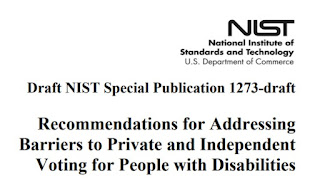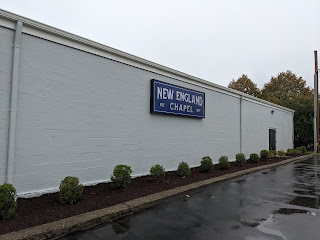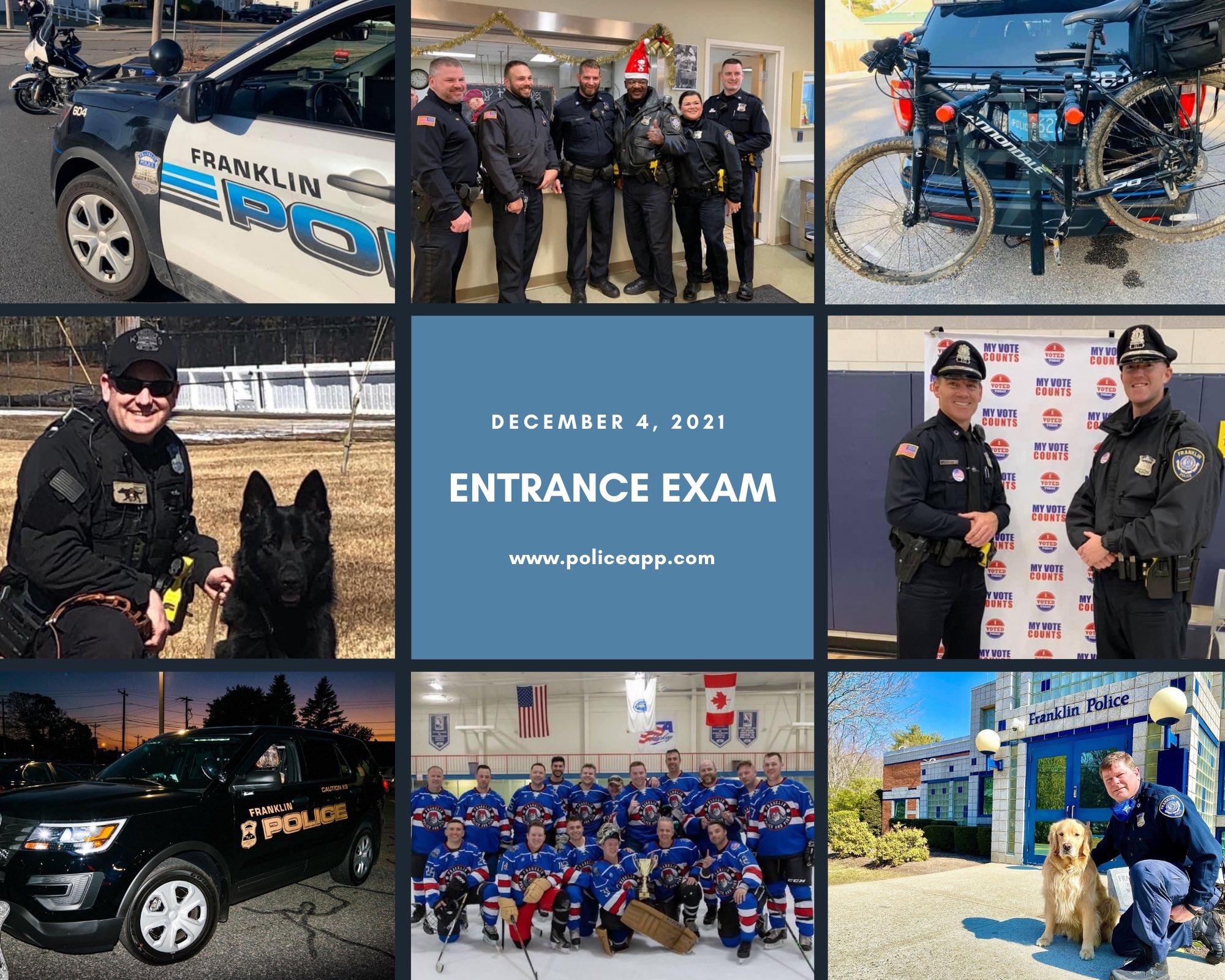|
Providing accurate and timely information about what matters in Franklin, MA since 2007. * Working in collaboration with Franklin TV and Radio (wfpr.fm) since October 2019 *
Friday, November 5, 2021
Your guide to holiday shopping during a chip shortage
From the IRS: "Year-end giving reminder"
The Internal Revenue Service today (11/03/21) reminded taxpayers that a special tax provision will allow more Americans to easily deduct up to $600 in donations to qualifying charities on their 2021 federal income tax return.
Ordinarily, people who choose to take the standard deduction cannot claim a deduction for their charitable contributions. But a temporary law change now permits them to claim a limited deduction on their 2021 federal income tax returns for cash contributions made to qualifying charitable organizations. Nearly nine in 10 taxpayers now take the standard deduction and could potentially qualify.
Under this provision, individual tax filers, including married individuals filing separate returns, can claim a deduction of up to $300 for cash contributions made to qualifying charities during 2021. The maximum deduction is increased to $600 for married individuals filing joint returns.
Included in the Coronavirus Aid, Relief, and Economic Security (CARES) Act, enacted in March 2020, a more limited version of this temporary tax benefit originally only applied to tax-year 2020. The Taxpayer Certainty and Disaster Tax Relief Act of 2020, enacted last December, generally extended it through the end of 2021.
Cash contributions include those made by check, credit card or debit card as well as amounts incurred by an individual for unreimbursed out-of-pocket expenses in connection with their volunteer services to a qualifying charitable organization. Cash contributions don't include the value of volunteer services, securities, household items or other property.
The IRS reminds taxpayers to make sure they're donating to a recognized charity. To receive a deduction, taxpayers must donate to a qualified charity. To check the status of a charity, they can use the IRS Tax Exempt Organization Search tool (https://www.irs.gov/charities-non-profits/tax-exempt-organization-search).
Cash contributions to most charitable organizations qualify. But contributions made either to supporting organizations or to establish or maintain a donor advised fund do not. Contributions carried forward from prior years do not qualify, nor do contributions to most private foundations and most cash contributions to charitable remainder trusts.
In general, a donor-advised fund is a fund or account maintained by a charity in which a donor can, because of being a donor, advise the fund on how to distribute or invest amounts contributed by the donor and held in the fund. A supporting organization is a charity that carries out its exempt purposes by supporting other exempt organizations, usually other public charities.
Keep good records
Special recordkeeping rules apply to any taxpayer claiming a charitable contribution deduction. Usually, this includes obtaining an acknowledgment letter from the charity before filing a return and retaining a cancelled check or credit card receipt for contributions of cash.
For details on the recordkeeping rules for substantiating gifts to charity, see Publication 526, Charitable Contributions (https://www.irs.gov/forms-pubs/about-publication-526), available on IRS.gov.
Remind families about the Child Tax Credit
Besides the special charitable contribution deduction, the IRS also encourages employers to help get the word out about the advance payments of the Child Tax Credit because they have direct access to many employees and individuals who receive this credit. In particular, remind low-income workers, especially those who don't normally file returns, that the deadline for signing up for these payments is now November 15, 2021. More information on the advance Child Tax Credit is available on IRS.gov.
For more information about other coronavirus-related tax relief, visit IRS.gov/coronavirus.
 |
| From the IRS: "Year-end giving reminder" |
FPAC Gala and Telethon - Nov 6
You don't have to have a ticket to bid !! Participate in our ONLINE AUCTION before and during the Gala (https://event.auctria.com/936c4b2c-648e-4d5c-8f53-e2ceaa3d05e2/a780d600ec2e11e9ae081db830846aa5).
Call in to our GALA TELETHON! 508-528-3370
Thursday, November 4, 2021
New England Chapel schedules Open House at former Ficco's Bowladrome - Nov 13
An historic building in Franklin is now
serving another kind of history:
Former bowling alley transformed into a new kind of church
Open House Set for Saturday, November 13, 2021
At least twice a week, a car will pull into the parking lot at 300 East Central Street in Franklin. Families, former patrons and even former workers want to see what has become of the place they used to spend their weekday nights, birthdays and teenage years. They are always delighted to see that the building remains and that a few of the creatively-repurposed bowling alleys are still on the premises. The transformation will be on full display as New England Chapel hosts a self-guided open house next month.
OPEN HOUSE
Saturday, November 13, 2021
3 to 5 PM
Self-guided tours, refreshments and giveaways.
How does a bowling alley turn into a church?
For more than 75 years, Ficco's Bowladrome served as the entertainment mecca of the small suburban town of Franklin, Massachusetts. It closed its doors in 2015 after an offer was made to demolish the building to make way for a shopping plaza. Hundreds of patrons came to say their goodbyes to the building that was the background for family nights, birthday parties, tournaments and more.
For six years, the iconic Ficco's Bowladrome at 300 East Central Street in Franklin MA stood abandoned. On another side of town, New England Chapel's lease was expiring and they were ready for a place to call home. A sales sign on the property caught the eye of the senior pastor during a ride to the supermarket in 2019 and well, the rest is history.
This unlikely community of buyers were able to purchase the building that would keep the walls standing and even a few bowling alleys on the premises. New England Chapel, established 20 years ago in Franklin, is a church for people who have given up on church but not on God. At a time when church attendance continues to decrease nationwide, hundreds of people attend the weekly services and attendance is growing. Many new attendees have come to 'check it out' due to their Ficco's connection.
A community comes together to make it happen
Much of the construction took place during the pandemic while the three pastors conducted virtual service out of their temporary office space
The community of New England Chapel came together to make this opportunity happen with many volunteering a collective 1,500 hours painting, unpacking and prepping the space
Inside the building (21,450 square feet)
A sanctuary that seats up to 400 people (where 10 lanes were previously)
A cafe-free coffee is served during services (where the party rooms once were)
A space for children from birth through 5th grade during services
A designated youth room
Conference rooms and offices rooms (including a library and prayer room)
About New England Chapel (NEC)
NEC is active in the community via partnerships with the Hockomock YMCA and the Franklin Food Pantry. Every year, they host a community-wide serve day where they end services early and send hundreds of volunteers out to serve local areas. Projects have included weeding a community garden, painting a concession stand at a local field, cleaning library windows and more.
More information available at nechapel.org.
Why the 'sudden' cancelation of the Town Council meeting?
"Section 1 Composition and Membership
2-1-1 The legislative body of the Town shall be a Town Council whose members shall be elected to meet, deliberate, act and vote in exercise of the corporate powers of the Town.
2-1-2 Nine (9) Council members shall be nominated and elected from the Town at large, all for two-year concurrent terms of office.
2-1-3 Town Council members shall receive no compensation for service but may be allowed expenses incurred in the performance of their official duties.
2-1-4 The term of office of the Town Council shall begin on the second Wednesday following the election and continuing until their successors are qualified."
"PREAMBLE
We, the people of the Town of Franklin, Massachusetts, in order to form a more perfect community, reaffirm the customary and traditional liberties of the people with respect to the conduct of our local government and take fullest advantage of the Home Rule Amendment to the Constitution of the Commonwealth, do ordain and adopt this Home Rule Charter for our Town."
You can find the full Town Charter online -> https://www.franklinma.gov/sites/g/files/vyhlif6896/f/uploads/revised_2013_1.pdf
 |
| Why the 'sudden' cancelation of the Town Council meeting? |
“People with disabilities continue to face barriers to voting"
- Hi, I’m a disabled voter in Massachusetts - my disability is multifaceted, but one physical presentation is loss of fine motor skill, or the ability to write. I get by in the world thanks to technology. Here are obstacles I and other disabled voters face in Massachusetts
- I’m a busy parent, and I didn’t fill out the application for an absentee ballot by October 13th this year Obstacle 1 - disabled people must be vigilant about dates that are sometimes hard to find in fine print on websites
- Obstacle 2 - disabled people must fill out a form (which can be done electronically, with one exception - more on that in a sec), And get it back to the their local election office on time JUST to receive a ballot.
- Obstacle 3 - that signature. Even though most cities and towns allow for electronic submission and typed answers into the form, MA requires that everyone must provide a “wet” signature (lol ew ). For me, this is the real obstacle.
- Alt text for above image: Picture of a text heavy form with the following highlighted: sign your application with a “wet” signature. Application signed with a mouse, stylus, or finger are also acceptable; typed signatures are not.
- My signature today is legible, however it is wildly different than it looked 18 months ago. The loss of my writing is something I’ve had to grieve, and the state of MA tells me: “Typed Signatures are not acceptable,” right there on the website! Not. Acceptable.
- Obstacle 4 - We, the disabled voters of MA, must then fill out our paper ballots, sign them, get them into envelopes (no easy task), and send back in time for them to be counted. We are expressly prohibited from returning a ballot to our polling place on Election Day.
- Text for this image: another text heavy document with the following highlighted: Once you receive your ballot, please return as soon as possible to ensure that it arrives in time to be counted. Ballots CANNOT be returned to the polling location on Election Day.
- OK so there are the big four obstacles outlined by the state - for me, it’s something I can overcome; I will go to the polls, and I’ll cast a ballot. I am extremely lucky, and one more MS relapse could take these options away from me.
- But I did some more research, and it looks like The city of Boston has amazing accessibility tools! https://www.boston.gov/news/accessible-voting-announced-ahead-november-2-municipal-election
- Everything can be completed online, even down to the vote itself, including that pesky signature! In Boston the language is changed to, voters may sign electronically. I was so thrilled to see this happening in Boston!
- But something was confusing on the website. Why are these accessibility tools only Valid through 2025? And then it hit me. The city of Boston provides excellent accessibility for voting because it was sued by several disability rights groups for violating article 2 of the ADA.
- None of these wonderful tools were given to disabled voters; disabled voters fought, and won, the right to vote without the significant obstacles I outlined above.
- So, we have a lot of work to do Massachusetts. When you head to the polls today, try to notice how many obstacles you encounter along the way. And when you get home, check out the amazing work of @BostonCIL and @ACBofMA and @DLCMA, Who fought and won.
- Sorry adding the place where you can find all the legal info about voting in Boston. Photo is of text heavy legal document that is also available on the link attached. thank you for reading! https://www.dlc-ma.org/wp-content/uploads/2021/09/BAV-Settlement-Agreement-9.8.2021-fully-executed.pdf
Coincidentally, I found in my inbox on Tuesday that NIST is looking for input and comment to address this disability issue nationally: "NIST Draft Publication Addresses Removing Barriers for Voters With Disabilities" https://www.nist.gov/news-events/news/2021/10/nist-draft-publication-addresses-removing-barriers-voters-disabilities
Direct link to draft out for comment -> https://nvlpubs.nist.gov/nistpubs/SpecialPublications/NIST.SP.1273-draft.pdf
The chapter headings for the draft are shown as follows:
2. SYSTEMIC BARRIERS TO AND RECOMMENDATIONS FOR VOTING ACCESSIBILITY
3. VOTER REGISTRATION AND THE NATIONAL VOTER REGISTRATION FORM
4. VOTING BY MAIL
5. VOTER TECHNOLOGY
6. POLLING LOCATIONS
7. POLL WORKER TRAINING
 |
| “People with disabilities continue to face barriers to voting" |
Heard the buzz about Franklin High School Theatre Company's production of Mamma Mia!?
|
|
Franklin Food Pantry: Donation do's and don'ts
This time of year we have a lot of questions about donating food to The Pantry. We put together a quick guide to help.
Please be sure to check our current needs list to see what we need the most and donate in our newly painted (thank you Kim Bruner DiMarino) purple bin!
Thanks for your support. https://www.franklinfoodpantry.org/give-help/donate-food/current-needs-list/
 |
| Franklin Food Pantry: Donation do's and don'ts |
Voices of Franklin: Colin Cass proud of the diverse election results
Why should the average Franklin resident care about diversity? What does it say about a town if it elects an openly gay man to the Town Council, a black man and a trans woman to the School Committee, and 10 women out of the 32 candidates?
I think it says that the town is NOT lots of things it should not be.
As an old straight white male, I had no favorite horse in this race, but personally I’m glad to see success in residents who are not just like me. Their success suggests that democracy is working as it should. And I do have a horse in that race.
Colin Cass
Franklin resident
FDP Newsletter: Preparing for the Holiday Season
| Support Franklin Businesses | ||||||||||||||||||||||||||||||||||||||||||||||||||
|
Franklin Police: Upcoming Entrance Exam - Registration & Requirements Info
***JOIN OUR TEAM***The exam registration and full list of requirements can be found at:
There is just under a month left to sign up for our upcoming entrance exam. The department is expecting to fill several vacancies.
Mass Senate Releases American Rescue Plan Act (ARPA) Spending Bill
Senate Ways and Means Releases American Rescue Plan Act (ARPA) Spending Bill
Bill's focus is on transformational investments in public health, housing,
mental and behavioral health, and the environment
Today (11/03/2021), the Senate Committee on Ways and Means announced a $3.66 billion American Rescue Plan Act (ARPA) spending bill to address COVID-19 recovery needs and build an equitable future for the Commonwealth. The Senate Ways and Means ARPA bill reflects the shared priorities of the Senate and recommends several thoughtfully targeted investments in health care, housing, environment, economic recovery and workforce development, while addressing economic and racial inequality and helping the communities disproportionately impacted by the COVID-19 pandemic.
"With careful planning, resourcefulness and compassion, the Massachusetts State Senate has played a central role in navigating our state through the darkest days of the COVID-19 pandemic," said Senate President Karen E. Spilka (D-Ashland). "At this critical juncture, we must not lose sight of the big picture. We need to address immediate and critical needs in mental health care access, food security, the struggles of small businesses and access to housing. We must also continue to build up and support our public health system, including by investing in our local boards of health. The plan put forward by the Senate Committee on Ways and Means today will use funding from the American Rescue Plan to not only build resiliency in these crisis areas, but will also set our Commonwealth on the path towards an equitable recovery. I thank President Biden and the Massachusetts Congressional Delegation for their work to pass the American Rescue Plan Act at the federal level, and I thank Senator Rodrigues, my colleagues in the Senate, the members and staff of the Committee on Ways and Means, and the many members of the public who provided input to help us help the people of the Commonwealth get back to better."
"As we strive to build a post-pandemic future for our Commonwealth, the Senate Committee on Ways and Means proposal to invest American Rescue Plan Act funds represents a once-in-a-lifetime opportunity to fuel an equitable recovery and lift up communities most disproportionately impacted by the pandemic," said State Senator Michael J. Rodrigues (D-Westport), Chair of the Senate Committee on Ways and Means. "Reflecting the shared priorities of the respective Senate membership, the Committee's bill released today makes clear that we heard the clarion call for smart, game-changing investments in mental health, public health, workforce development, affordable housing, and so much more, ensuring those hit the hardest by COVID-19—families, essential workers and small businesses—are being helped the most. I want to thank Senate President Spilka for her leadership and continued friendship, Vice-Chair Friedman, Assistant Vice-Chair Lewis and members of the Committee for their continued advocacy, and our partners in the House, especially Chair Michlewitz for his continued commitment to ensuring we chart a more equitable path forward, while also keeping an eye on the fiscal health of our state."
"The lack of access to quality and timely behavioral health care has only been exacerbated by the COVID-19 pandemic," said Senator Cindy F. Friedman (D-Arlington), Vice Chair of the Senate Committee on Ways and Means. "This bill—with its historic-level of investment in our behavioral health system—takes real and immediate action to begin addressing the critical workforce issues facing the behavioral health and human services sector. The opportunity to add close to 2,000 workers to these sectors will have a profound impact for our residents and reaffirms the Senate's commitment to expanding access to much needed mental health services, especially in communities most impacted by the pandemic. I applaud Senate President Spilka and Chair Rodrigues for their leadership and using this unique opportunity to take meaningful action to address these persistent issues."
"Thanks to President Biden and congressional Democrats who passed the American Rescue Plan Act earlier this year, Massachusetts is seizing a momentous opportunity to invest in a strong and equitable pandemic recovery" said Senator Jason Lewis (D-Winchester), Assistant Vice Chair of the Senate Committee on Ways and Means. "I'm very grateful for the extensive and constructive input from a wide variety of stakeholder groups and members of the public who helped the Senate craft legislation that clearly reflects the needs and priorities of communities across the Commonwealth, especially those hardest hit by the pandemic."
"The Senate's ARPA spending plan presents many exciting, much-needed, and once-in-a-generation opportunities for the stabilization and growth of our Commonwealth," said Senator Patrick O'Connor (R-Weymouth), Ranking Minority Member of the Senate Committee on Ways and Means. "I am grateful to Chair Rodrigues and Senate President Spilka for proposing meaningful investments in the most high-needs areas, such as public health infrastructure, small business relief, and workforce development. After mindful planning and consideration, I believe we are fully prepared to release these federal dollars across Massachusetts in the most pragmatic and helpful way possible. I look forward to the upcoming deliberations with our Senate colleagues to fully realize the potential of this opportunity."
The Senate ARPA spending bill recommends a total of $3.66 billion in spending, utilizing up to $2.5 billion in available American Rescue Plan Act funds and up to $1.45 billion in available Fiscal Year (FY) 2021 state surplus resources. Informed by the testimony heard extensively throughout the public hearing process, which included over 25 hours of public hearings and more than 450 letters of public testimony, the Committee's ARPA spending bill supports an equitable recovery for communities hardest hit by the pandemic, while maintaining the flexibility necessary to take advantage of future federal funding opportunities.
The ARPA spending plan helps families, vulnerable populations, and communities historically underserved, investing more than $1 billion to support the state's health care system and confront the long-term impacts of COVID-19. Understanding the toll the COVID-19 pandemic has taken, the Committee's bill proposes to invest $400 million in mental and behavioral health supports, including over $122 million to address immediate workforce needs. Additionally, the Senate's plan revolutionizes the state's local and regional public health infrastructure and makes an historic investment of $250.9 million to ensure the Commonwealth can protect the public health of residents, workers, and businesses for years to come.
Health care investments include:
- $400 million to support the behavioral health sector, including over $122 million to expand loan repayment programs for behavioral health professionals, including substance use disorder professionals, and meet the increasing need to retain and build our workforce. This investment is expected to help recruit and retain nearly 2,000 mental health professionals across the continuum of care.
- $300 million for the Home and Community-Based Services Federal Investment Fund to address workforce needs for those caring for some of our most vulnerable populations.
- $250.9 million to revolutionize local and regional public health and provide equitable access to high quality protections for all Massachusetts residents, including $118.4 million for public health infrastructure and data sharing upgrades, and $95 million for directs grants to local boards of health to maintain ready-level response to future public health threats.
- $200 million for acute hospitals impacted by the COVID-19 pandemic.
- $55 million to support a robust and diverse human service workforce through recruitment, retention, and loan forgiveness programming.
- $60 million for food security infrastructure grants to continue combatting hunger,
- $50 million for nursing facilities, including $25 million for capital support, to increase the quality of patient care and $25 million for workforce initiatives.
- $25 million for a grant program for community violence prevention and re-entry organizations, focused on communities disproportionately impacted by the COVID-19 pandemic.
Charting a post-pandemic future, the Senate's ARPA spending plan invests $1.7 billion to fuel an equitable economic recovery for all by supporting workers, businesses and communities hardest hit by the COVID-19 pandemic. The Committee's bill dedicates $500 million towards premium pay bonuses for essential workers, providing much needed relief to the workforce who served on the front lines during the pandemic.
Economic recovery and workforce development investments include:
- $500 million for premium pay bonuses for essential frontline workers who worked during the height of the pandemic.
- $500 million for the Unemployment Insurance Trust Fund, providing necessary relief to small business.
- $100 million for vocational school infrastructure and capacity building needs.
- $75 million for the Workforce Competitiveness Trust Fund to support organizations working with people displaced from jobs during the pandemic, historically underserved populations, and individuals reentering their communities from the corrections system.
- $75 million for equitable and affordable broadband access and infrastructure improvements to close the digital divide.
- $75 million for Mass Cultural Council grants to support our cultural sector.
- $50 million for direct grants to minority-owned small businesses.
- $30 million for regional high-demand workforce training at community colleges.
- $25 million for the expansion of Career Technical Institutes.
- $20 for workforce development and capital assistance grants to the Massachusetts Alliance of Boys & Girls Clubs and the Alliance of Massachusetts YMCAs.
- $15 million to enhance and diversify our cybersecurity sector with partnerships between public higher education institutions and private businesses.
- $12 million for the resettlement of Afghani evacuees.
- $8 million for agricultural economy supports.
The bill also provides close to $200 million tax relief for small-business owners who would have otherwise been required to pay personal income taxes on state or federal relief money.
The spending plan acknowledges the critical role that housing plays in economic recovery. Over a year and a half into the pandemic, access to stable and affordable housing remains at the forefront of the state's strategy to ensure economic security for those who call the Commonwealth home. Reflecting the Senate's long-standing commitment, the Committee's ARPA spending bill allocates $600 million for investments in affordable, accessible housing, as well as supportive housing.
Housing investments include:
- $150 million for supportive housing, including $75 million for the chronically homeless population.
- $150 million for public housing authorities to maintain and upgrade existing infrastructure.
- $125 million for the Commonwealth Builders Program to support housing production and promote homeownership among residents of disproportionately impacted communities.
- $125 million for affordable rental housing production for the workforce.
- $50 million for homeownership assistance tools, including down payment assistance and mortgage interest subsidy supports.
In addition to making investments to support an equitable recovery that lifts hardest hit communities, the Senate bill prioritizes building a more resilient Commonwealth and ensuring a healthier environment for all. To that end, the Committee's bill invests $450 million to combat climate change through mitigation initiatives, strengthen environmental infrastructure, fix aging water infrastructure, and modernize marine port infrastructure to support the state's emerging offshore wind industry.
Environment and climate investments include:
- $175 million for water and sewer infrastructure investments through the Clean Water Trust.
- $125 million for environmental infrastructure grants, including the Municipal Vulnerability Preparedness (MVP) program.
- $100 million for marine port infrastructure investments focused on the promotion of offshore wind development.
- $20 million for Greening the Gateway Cities program to support tree planting.
- $15 million for parks and recreational assets.
- $10 million for clean energy retrofitting in affordable housing units.
- $5 million for the advancement of geothermal technologies.
Finally, to support communities disproportionately impacted by the pandemic and prioritize historically underserved or marginalized populations, the Committee's bill establishes a federal funds equity and accountability review panel to track in near real-time the amount and percentage of ARPA funds spent in these communities and awarded to minority and women business enterprises. Additionally, the bill also requires state agencies and authorities to promulgate rules or regulations to ensure the fair participation of minority and women-owned business enterprises.
Senators can file amendments to the Senate Ways and Means recommendations until Friday, November 5. The full Senate will then debate the ARPA spending bill in formal session beginning Wednesday, November 10.
Video link: Massachusetts State Senate Releases ARPA Investment Proposal - YouTube











